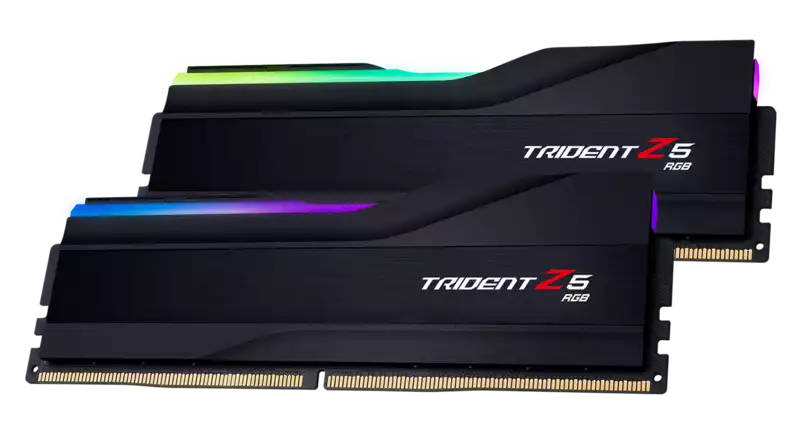It seems like every other day we get word of faster DDR5 memory; less than two weeks ago we wrote about G.Skill's upcoming Trident Z5 DDR5-6800 CL32 memory (opens in new tab). This kit, while impressive, seems to be little more than an unveiling of what Intel's 13th generation CPUs will ultimately be capable of.
Intel has expanded its list of XMP 3.0-compatible memory kits (opens in new tab) (via Benchlife (opens in new tab)). The latest kits support up to 7600 MHz. Yes, DDR5-7600. The kit in question is made by G.Skill and was tested on Asus' upcoming Maximus Z790 Apex motherboard. There is also a 7466MHz kit, also made by G.Skill, which has been verified not only on the Apex, but also on the more worldwide Z790 Hero.
Several other high-speed kits are listed, with Teamgroup, Kingston, and Adata all offering 7000 MHz or higher. Interestingly, not all of them are in 2x16GB capacities; there are also several 2x32GB sets running at 7200MHz. This is a good indicator that the 13th generation memory controllers have been upgraded. None of the fastest kits have been validated (at least not yet) with 12th generation processors.
These very fast modules are most likely using 2nd generation Hynix A-die chips. First generation Micron and Samsung based memory cannot achieve these speeds, and the best kits available today in the 6400 MHz to 6600 MHz range use Hynix M-dies. DDR5 is getting better all the time. And development will continue for years to come.
As DDR5 speeds increase, any remaining latency concerns disappear into the rearview mirror. With one exception, games tend to be latency sensitive, so a good DDR4 kit is still perfectly viable, even if it runs at half the speed of DDR5. However, once speeds exceed the 7000 MHz threshold, the C34's 7200 MHz is roughly equivalent to the best-spec 3600 C14 set; while secondary and tertiary timings still outperform the best DDR4 kits, the real-world difference should not matter. An added benefit is the doubling of bandwidth.
What we don't know is the price of these mega kits; DDR5 is still priced relatively higher than DDR4, and these super-fast kits are sure to be very expensive; 2x32GB kits at 7000MHz+ are going to be ridiculously expensive.
Personally, I'm looking forward to getting my hands on this 2nd gen DDR5. I may not need it, but I sure want it.


Comments